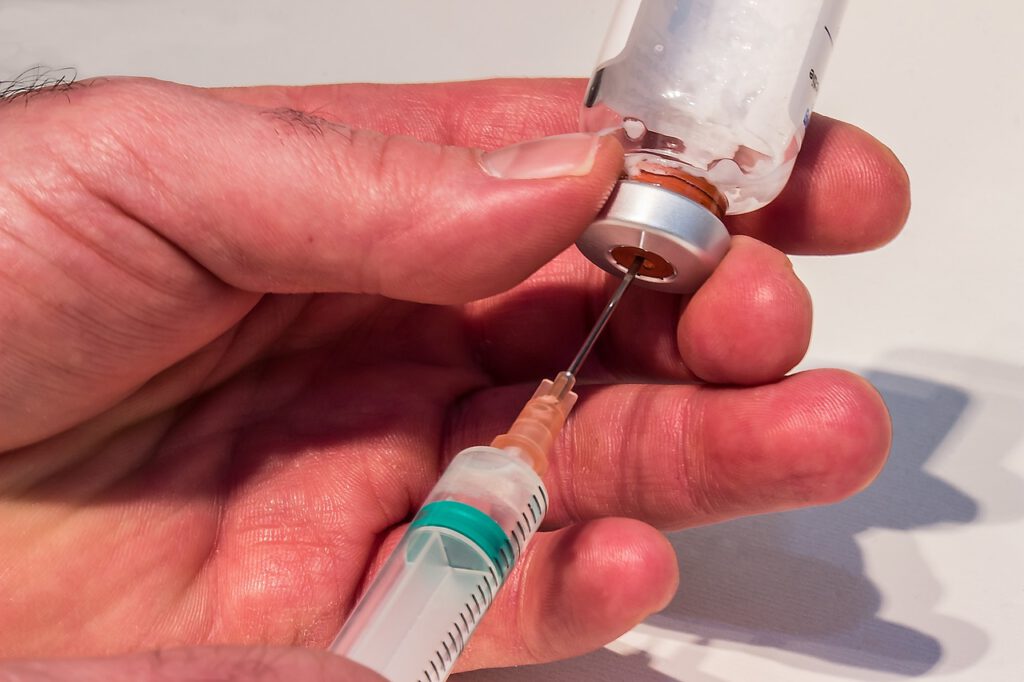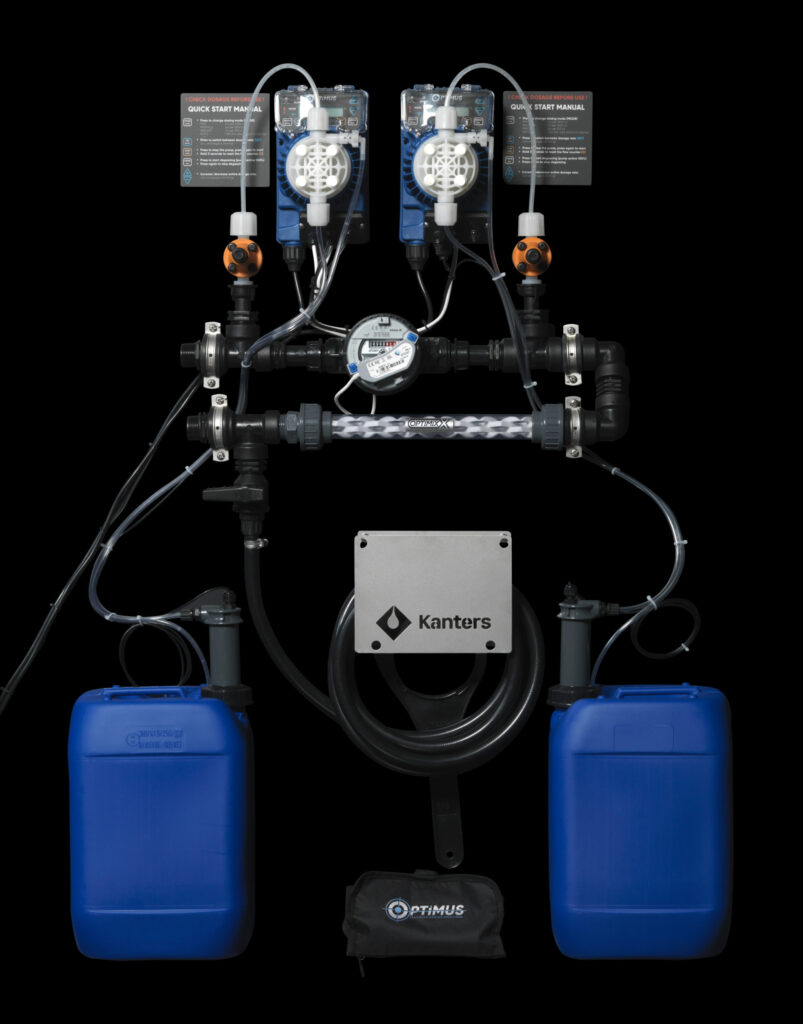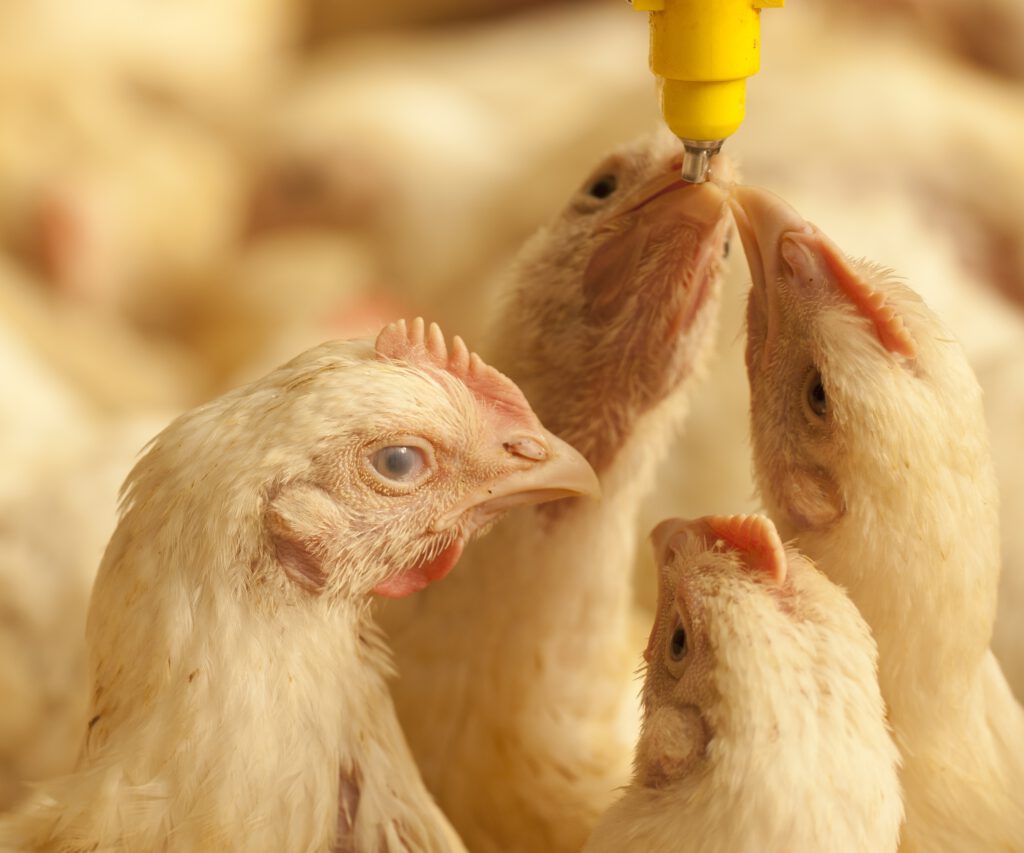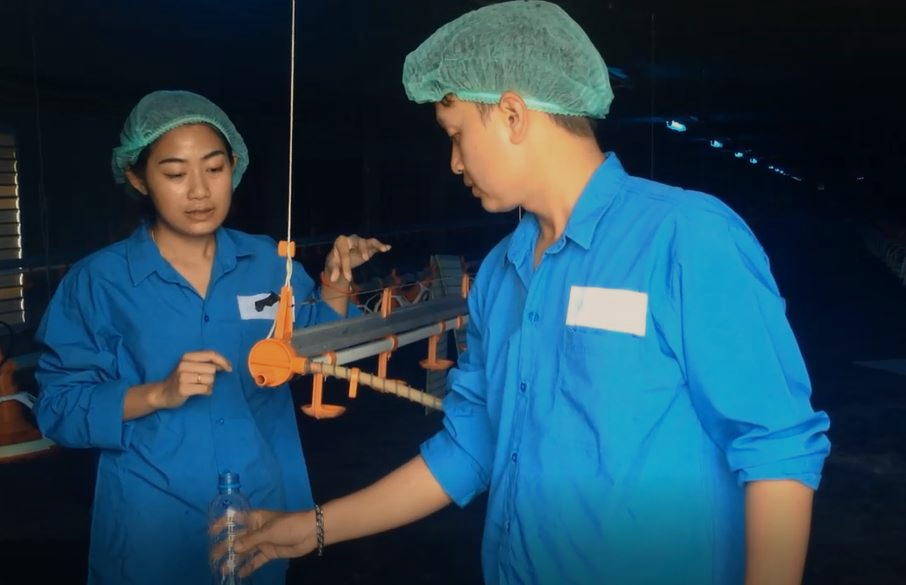Water monitoring and
dosing advice
How is water quality determined and on what is dosing advice based?
To determine the quality of the drinking water we distinguish between the chemical quality and the microbial quality. In our lab, we determine the standard microbial status of the water and if desired or necessary, the chemical status of the water is checked.
Determination of microbial quality
The microbial quality of the drinking water is determined by means of dipslides. A dipslide is the most common test to show the presence of micro-organisms in fluids. A dipslide consists of a submersible plastic carrier, which is located in a round, clear tube. On this plastic carrier there are two types of sterile culture medium. The culture medium on the first side is for the detection of bacteria. On the second side there is a medium for the detection of yeasts and moulds.
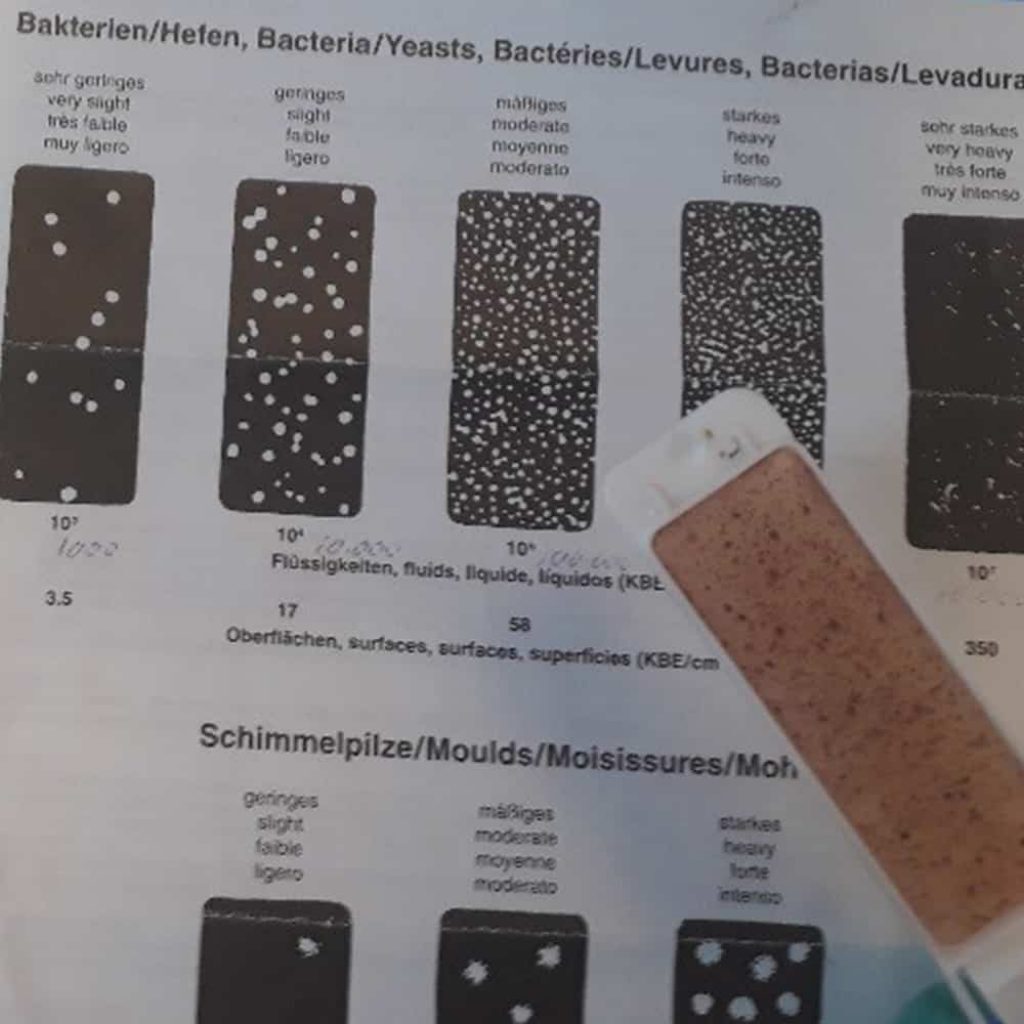
The plastic carrier with medium is immersed in the drinking water sample for 5 to 10 seconds. The dipslide is then incubated at 30°C, which allows the growth of bacteria, yeasts and moulds. After 24 to 48 hours, the quantity of bacteria can be read from side 1 in the form of red colonies. After 5 to 7 days, the amount of yeasts (pink colonies) and the amount of moulds can be read from the second side.
The standards for clean drinking water at Kanters are based on the guideline of the Animal Health Service (GD). When the values found are above these standards, cleaning of the water system will be advised.
Dosing advice
Water
In order to guarantee water quality, it is important that a product is not dosed blindly. For pH-controlled products, the aim is a pH of 3.8. Achieving the correct pH value prevents negative consequences. If the dosage is too low and a pH of <4 is not achieved, there is a chance of contamination in the water supply. Too high a dosage can lead to a pH that is too low, causing animals to stop drinking the water. As the water quality of each source is different, it is possible that 500 ml of product more or less needs to be dosed when using a different source in order to achieve the same pH reduction. This is due to the pH and hardness of the water in the source. It is therefore recommended that a dosage advice be carried out before dosing acids.
At Kanters, most dosages are given in ml of product per 1000 litres of drinking water. Using 1 litre of drinking water from the well, the dosage can be simulated on a lab scale.
The advice usually starts at 500 ml product per 1000 litres drinking water and goes up in steps of 250 ml per 1000 litres. After each addition, the pH is measured until a pH of 3.5 is reached. Subsequently, a report is drawn up which, among other things, states at which dosage the source water reaches a pH of 3.8.
Liquid feed
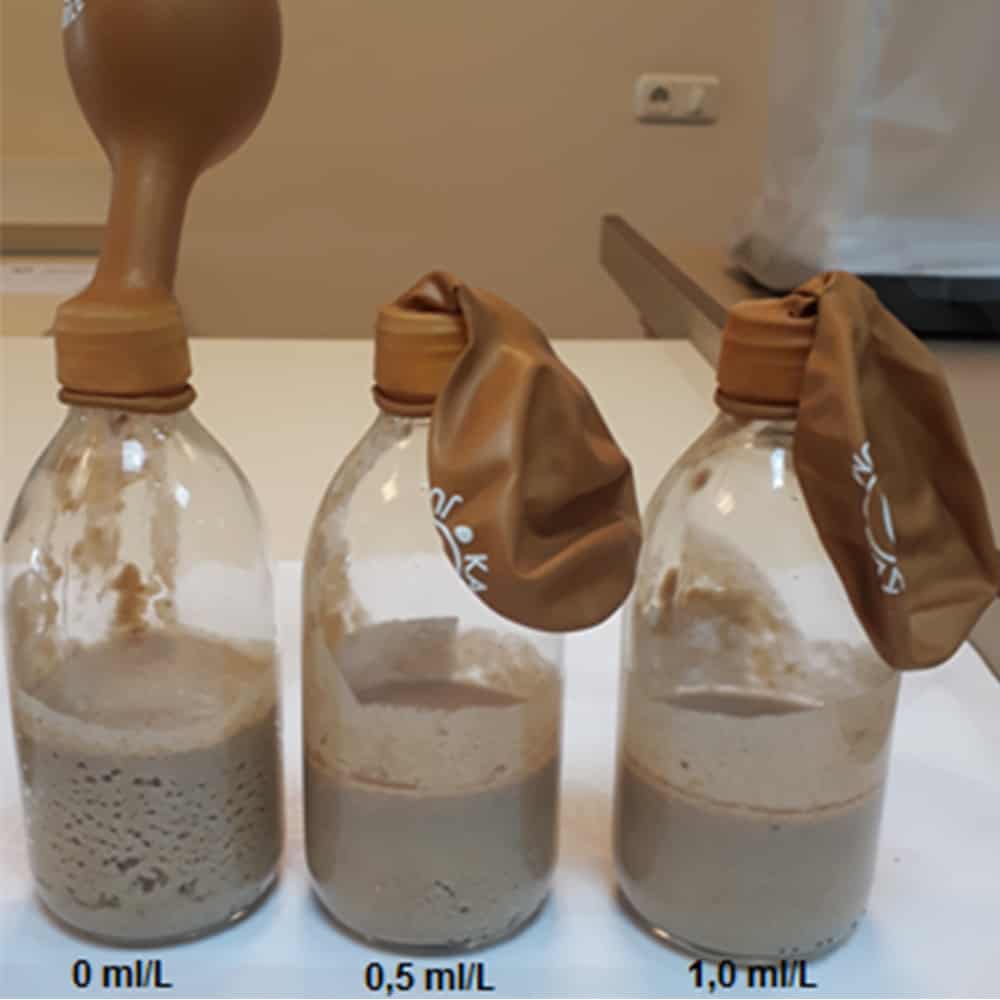
Not only for drinking water, but also for liquid feed it is possible to get a dosage advice. To determine how much Nutripreserve AMY is needed to prevent fermentation in liquid feed a balloon test is performed. The balloon test will show that the higher the concentration of acid, the less fermentation and gassing will occur.
In the balloon test, the liquid feed sample is placed in glass bottles without the addition of acid and with the addition of different concentrations of acid. The bottles are closed by means of a balloon. When fermentation takes place, gases will be released. The released gas can be seen by an increase in the volume of the balloon and by an increase in the volume of the liquid feed. The balloon test is judged by the amount of gas released. The more fermentation, the more gas is released. Therefore, the sample without gas formation with the lowest concentration of acids will reflect the minimum advised dosage.
